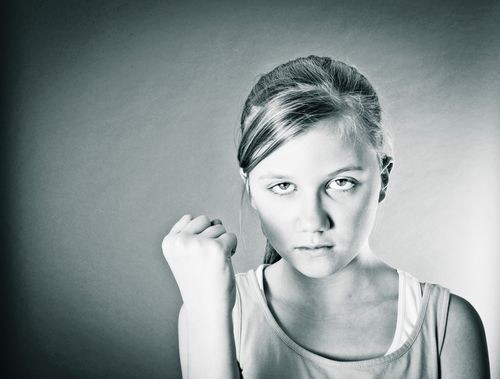Mean Girl Behaviors Subside With Discussions, Role-Playing: Tackling Relational Aggression

The emotionally sensitive teen years can be fraught with jealousy, frustration, and spite. In an effort to reduce so-called “mean girl” behaviors, a group of University of Missouri researchers have developed a strategy for intervention, which they’ve published in a recent study.
GIRLSS, or Growing Interpersonal Relationships through Learning and Systemic Supports, makes use of a number of methods taken together to help teen girls work through their conflicts in a healthy way. For many students, high school marks a critical turning point in their personal development. What may otherwise be minor interpersonal issues could lead to destructive decisions that stick with students for years.
“It takes a village to raise relationally healthy children,” said Melissa Maras, co-author and assistant professor in the MU College of Education, in a statement. If a school wants to address the problem of relational aggression — the sort of minor violence or abuse that too often plagues student bodies, most often stemming from petty disputes — it must approach the issue from multiple angles.
In their pilot study, Maras and her colleagues ran a 10-week program involving local middle school girls and their families. Once a week, girls between 12 and 15 participated in a 70-minute session involving interactive discussions, role-playing, journaling, and goal setting. Caregivers also learned once a week how to improve their communication skills and make better use of disciplinary actions.
At the end of the program, relatives and school officials reported relational aggression levels had been significantly reduced. “This study represents a first step in helping school personnel meet the intervention needs of a diverse group of relationally aggressive girls,” Maras said.
Relational aggression is different from normal aggression. In most cases where bullying is involved, the bully will target a victim directly. This can be through verbal abuse, like taunting and name-calling, or through more physical forms, such as pushing, punching, or hair pulling. Relational aggression is indirect. Like the eponymous characters in the 2004 film Mean Girls, people with relational aggression will go after the victims’ social networks, spreading hurtful rumors and damaging their social status.
A precarious mix of hormones causes movies like Mean Girls to resonate so much with audiences because middle and high school are the first times teenagers must confront their status in relation to other people. Too often, unfortunately, emotions and miscommunication get in the way. MU researchers wanted to break these mindsets — to show pre-teen and teen girls that resolving personal conflict doesn’t depend on cutting down someone else. Misunderstandings are rampant.
To senior author and assistant professor in the Department of Health Psychology Connie Brooks, most important are the rules and regulations set by family members and school officials. The more the team’s intervention strategies can play out in the real-world school environment, the more likely students will be to handle conflict with maturity.
“Good outcomes can happen when priorities are set by schools and families to prevent and eliminate relational aggression,” Brooks said. “This study was an attempt to address this social problem in a meaningful way by testing an intervention to reduce relational aggression among teen girls.”
Source: Splett J, Maras M, Brooks C. GIRLSS: A Randomized, Pilot Study of a Multisystemic, School-Based Intervention to Reduce Relational Aggression. Journal of Child and Family Studies. 2014.
Published by Medicaldaily.com



























